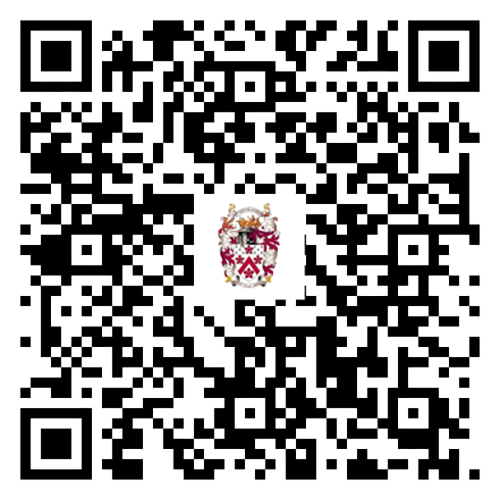Parent tips from our Director of Community Wellbeing, Senior School
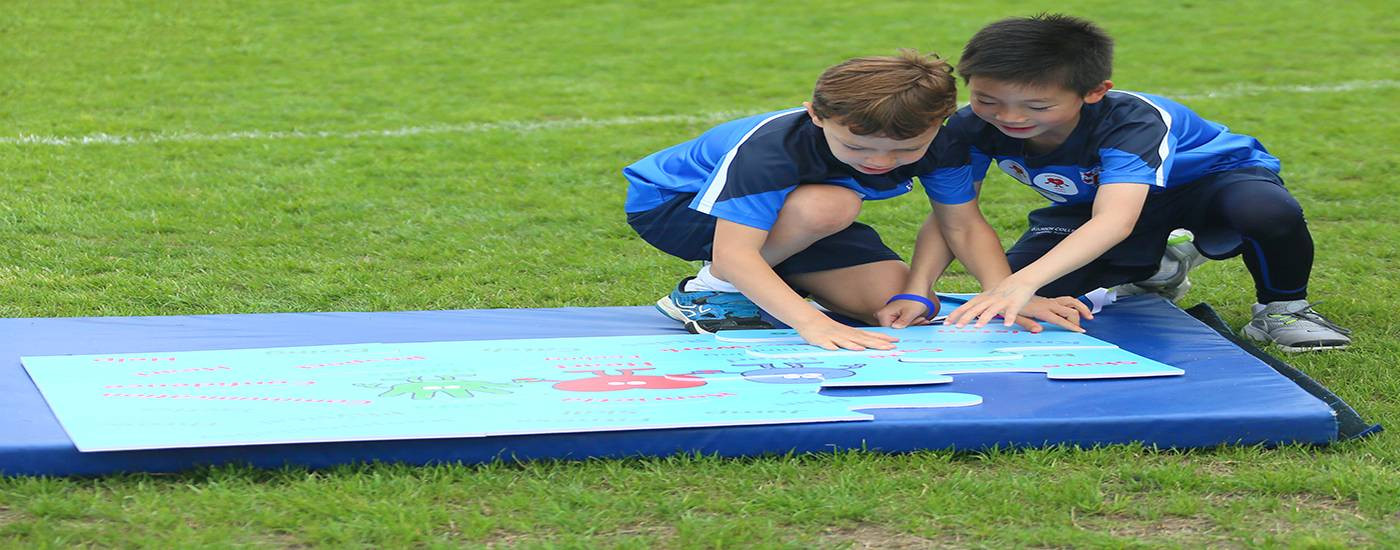
Dear Dulwich Parent,
Greetings from Shanghai! I sincerely hope that all of you are healthy and adapting to life online. These are circumstances that we didn’t choose, but it’s in facing adversity that we can learn to adapt, improvise, and not let something good be the enemy of something great. It’s in that spirit that we offer the following…
Over the course of the last week and a half, many questions have been submitted by parents seeking assistance in one or more areas. These many questions have been distilled into the four questions below and while these four questions are by no means exhaustive, it is a start. We thank you for reaching out and letting us know your current areas of need. These answers have been informed by my own experience as both child and (now) parent, the books “The Life-Changing Power of Tidying up,” by Marie Kondo and “Simplicity Parenting,” Kim John Payne, and as a new member of the Dulwich community. I hope they are of help to you and your family.
Please feel free to reach out to me at [email protected] if you have more pressing issues or simply want someone to bounce ideas off. I’m here to serve you in whatever way will be most helpful to your family.
Just as you are working to maintain a home filled with security and warmth for your children, know that we are working hard to create and maintain a learning environment that helps our faculty and your children meet their highest standards during this challenging time.
Be well,
Mr Peter Rogers
Director, Community Wellbeing - Senior School
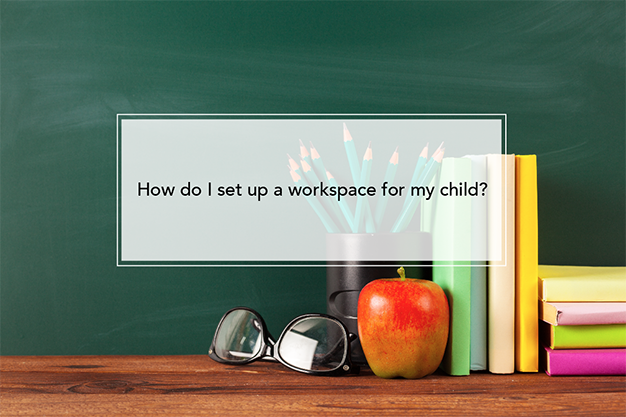
When doing parent workshops at various international schools, one topic is nearly a universal choice for “We need help here!” and that is how to simplify our homes and create optimal living spaces (workspace and play space) for children and parents.
How we make a home for our children shapes who they are becoming and, as such, starting with the actual “space” of a home is a great place to start. Most parents I meet say the same types of things. We have too much “stuff.”
The reality is this…
Too much stuff leads to too many choices, which can cause overload and also a sense of fragmentation.
How? Children today often have so many things that none of them have special significance or value. When children are given an almost infinite array of choices, they may learn to undervalue them all…which can lead into a consumer cycle of wanting more and more. Why more and more? Even young children can internalise and equate their self-worth with the number of “things” that they have. In this model, if a child doesn’t have enough things, or the “right” things, then they can be vulnerable to emotional distress.
Paradigm Shift
Declutter! We often want to fix the problem of a child’s room being cluttered by getting them to declutter their room. This is a good start. However, if YOUR rooms, or the living room/dining room, etc. are all filled to capacity, then the declutter in your child’s room will not last. Listed below are my two rules of thumb; one from a wise mentor and the other from Marie Kondo, author of “The Life-Changing Magic of Tidying Up.”
- Mentor Tip: Don’t accumulate. If you buy a new book, get rid of an existing book first. If you buy a new pair of pants do so to REPLACE a pair of pants….not just to add a new pair of pants. Not only does this help keep clutter down but also forces us to prioritise. Try this with your kids the next time you go shopping for toys. “Oh, you want this new toy? Ok…That’s a great toy, but we don’t want to have too many toys in the house. What toy would you want to give away so that we can buy this new toy?
- From Kondo. Look at everything in your home or office. Do you LOVE it? If not, get rid of it. That way, the only things your eyes fall on in your home or office are things you love. *for example, in my WeChat feed I only see feeds from people who I know well and am connected with. I have 2,883 contacts in WeChat. I see (maybe) 30 people’s feeds. Why would I waste my time looking at photos or looking at something from one of the 2,853 contacts from people who aren’t critical for my wellbeing? It doesn’t mean that these people in my contact list are bad or wrong, it’s just that they are living a life that is amazing but tangential to my emotional health. Do you want to regulate depression and anxiety? Have a few close, deep and meaningful friendships that you invest in. Decluttering WeChat can be a place to start!
In a like manner, separate the workspace for work. For example, in my childhood home, the dining room table was where all my brothers, sisters and I would gather to do our homework after dinner was finished and the dishes done. Create a similar place for your children to do their work. Make it a workplace and a workplace only…even if it’s for just a few hours at a time. I would also encourage you to have your children spend as little time in their bedrooms as possible. For many, not all, there are too many distractions in their bedrooms and workplaces are for focus.
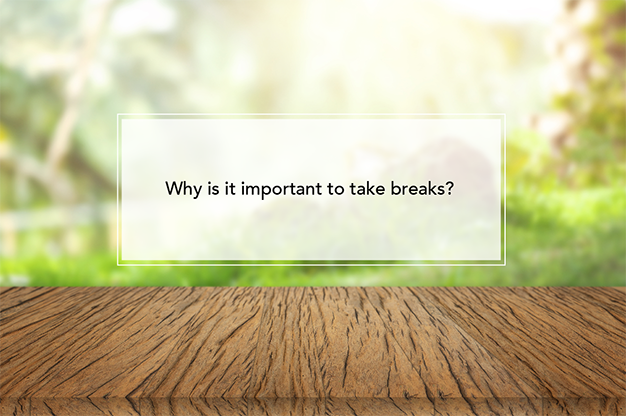
"Take rest; a field that has rested gives a bountiful crop.” — OVID
First, let’s not talk about taking breaks. Taking breaks is important, very important if we want to remain focused and moving forward. More important than breaks, however, is RHYTHM.
As a parent of an 18-month-old boy, he is learning every day that there is a rhythm to life. That mommy and daddy go to work and come home (although not lately of course!), that the birds are in the trees in the morning, that when he’s hungry he will get a snack and that bath time is right after dinner. In short, he’s learning rhythm…his place in the “Circle of Life” so to speak and it is an incredibly important developmental time of life for him.
It is also important for older children and adults to have a rhythm in life. Rhythm provides repetition and repetition provides meaning.
“We are, what we repeatedly do.” — Aristotle
I can hear what you’re thinking: “What? Rhythm? Do you know how crazy our lives are? In fact, I do. What I want to suggest is that nothing has to be perfect. Just intentional. If events are predictable, it is much easier for children to emotionally manage them. So, even if your schedule changes every day, going over tomorrow’s schedule, in an unhurried manner, at bedtime with your children, can be a good strategy for getting buy-in from them. It won’t be perfect, but predictability and rhythm can be amazing friends to us as parents.
Paradigm Shift
As we all work through this crisis together, having a rhythm to your day (with breaks built in of course) will help ALL of us find deeper connection with others. In my family, we strive for consistency, consistency, and consistency. If you and your family are all over the map with your rhythms, perhaps getting together for some things during the day would be helpful. I recently spoke with the mother of a Year 7 student and she told me that despite their crazy lifestyles, their family eats dinner together every night without fail and without their phones. That’s a great example of rhythm. No matter what else happens, dinner will be with family and without phones.
Let’s get into rhythm and build those breaks into a larger story.
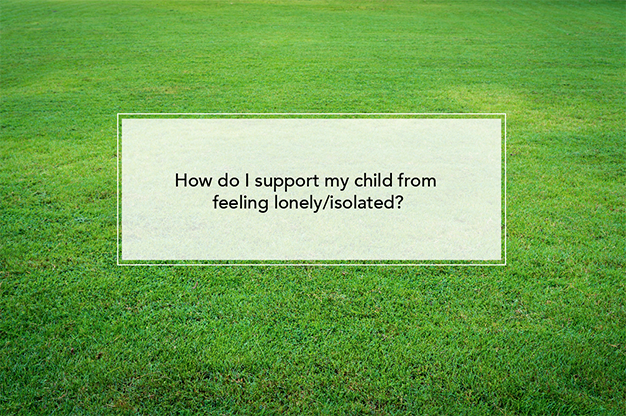
First of all, no one knows your child like you do. To that end, it is important to recognise that children will manifest their emotions differently. If you have an “introverted” child, they may withdraw from emotional contact if they are feeling lonely or isolated and if your child is more “extroverted” they may be more aggressive or prickly. My son announces loudly and clearly when he is unhappy. The bad news, it hurts my ears. The good news, we know something is not right and we can adjust. Thankfully, he’s generally quite happy!
Of all the needs that children exhibit (particularly adolescent children) the most striking is the need to BELONG. Research is clear that as young people reach early adolescence their PEERS become the most influential people in their lives. Peer pressure is very real. Add to that reality, the dynamic that adolescents can sometimes swing wildly between all-out activity and sleeping (coma-like) for 12 hours straight! (I miss those sleep days!) As such, there will be times in your child’s life when they will feel lonely and isolated if they are far away from the people whose opinions matter the most to them; their peers (not simply friends). That is just a reality.
I would argue that this crisis affords us an opportunity to unplug our phones and computers and read, draw, walk or play together. Feeling deeply connected to people who are foundational to your wellbeing is incredibly enriching and healing. You don’t need to spend hours a day with your children but can you schedule one hour a day of uninterrupted time? Most people can easily do that. Try it, the results might surprise you…especially if you let your children lead you on this and set the agenda (pick the game, the route for the walk, what toys to play with, what we’re all going to cook for dinner, etc…)
Paradigm Shift
Noticing. Forgive the metaphor during our current circumstances but if your child seemed a bit sluggish for no apparent reason, the usual response is to place your hand to your child’s forehead and feel for a fever and ask “Are you feeling okay?” The same thing can be helpful emotionally. You don’t have to pry, but simply noticing and validating can be an incredibly impactful way to support your child, particularly in adolescence.
For example, if your child is missing a dear friend who is halfway around the world, they may be a bit down or sullen. Noticing that by saying “Hey, you seem a bit down today…. what’s up?” can be a good start. If you get a response from your teen that sounds like a primitive grunt ‘Nuthin’ my response may be to simply say “It must stink being so far away from your friends.” If you are correct, and they miss their friends, you have deeply validated them, and they may open up about it. If you are mistaken, it gives THEM the opportunity to talk about what is really bothering them. In other words, you don’t have to solve their problem, simply validating their feelings can be enough to start the sharing….and remember, listening more than speaking would be important here!
That being stated, let’s go back to rhythm. Is there a way to schedule and make predictable your child’s online interactions with their friends…especially a group chat? Perhaps your daughter or son can take the lead and form a group chat. Anything to give them a sense of being effective in the world.
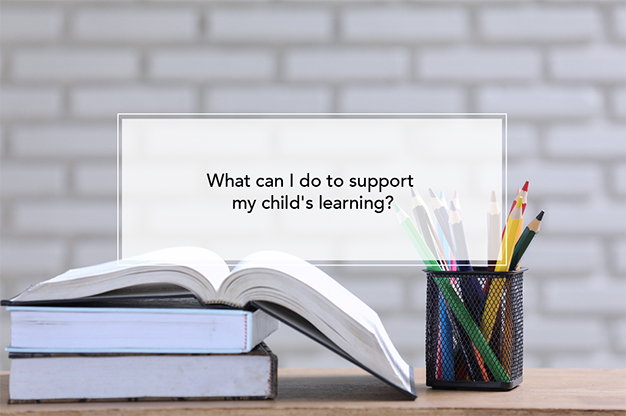
My answer here is a simple one. Support, for it to be meaningful, needs to be consistent and loving.
Consistent: Set up a rhythm to your day and follow that rhythm. The predictability will be helpful to both you and your child.
Loving: One can be firm and warm at the same time. Your child is not in charge, you are. Be the parent, but if you’re consistent, and warm, then that’s one form of being loving. One more thing…times are weird, let’s give each other the positive benefit of the doubt when we’re ambiguous about the intentions of your child, the Dulwich faculty and staff, and the other important people in your life. Being graceful in challenging circumstances will help all of us endure and succeed to the best of our abilities.
More practically, if you can, be in contact with teachers (perhaps one teacher for every day of the week) e.g. Ms. Smith on Monday, Mr. Jones on Tuesday, Mr. Rogers on Wednesday, just to keep everything consistent. You don’t have to follow this structure strictly, but this brings rhythm to your world and the added bonuses are that your child’s teachers don’t get overwhelmed with messages and you get good information about your child’s learning. Win/Win.

Hello Dulwich Parents,
I hope this message finds you well as we prepare for the initial stages of return and eventual reunion. We're still some time away from being fully back to normal but we're moving forward and conditions in Shanghai continue to improve which is to be applauded. Many of you will be travelling back to Shanghai soon and entering into the mandatory 14 day quarantine period. Here are four things to consider as you strategize how to use that time to your best benefit.

1. Be a healthy role model: Social referencing is a concept in psychology that details how children take social cues from their parents and those close to them. More practically, it means that your children are watching you and mirror your behaviour and emotional states! During this time of transition, it's particularly important to model behaviour and thinking that is calm and focused. If you're anxious, then your children will more than likely pick up that energy. It's perfectly natural to be anxious but if you need to speak about your anxiety, or express your anxiety, then it would be most helpful to do so away from your children if possible. We don't want to totally hide anxiety from our children, but exposing them to unnecessary anxiety doesn't serve them and will only increase their anxiety. Also, be prepared for the possibility (high likelihood actually) that your children may take some time adjusting back to life in Shanghai, particularly with their desire to be with their friends and not you when they finish quarantine. This is completely normal and healthy even if it hurts.

2. Take the good: Personally, I can say that this time of self-quarantine has helped me in two significant ways. The first is that I genuinely feel closer to my family. We have played and laughed more during this time than in the past for sure. The second is that I'm healthier than I was when my self-quarantine started. What memories, routines, or insights that we can build on to create a more meaningful life? This could be a great opportunity to sit down with your family (perhaps over a special "end of quarantine" meal) and have an honest discussion about what they'd like to take with them as far as insights and experiences. Maybe family dinners will be prioritized again. Maybe Sunday walks in the park as a family can happen. Maybe mom and dad give their children more responsibility. In short, if we look for the positive, we can find the positive. I have renewed my commitment to exercise more and also spend the weekends in dedicated family time. It feels great!

3. Leave what wasn't helpful: In speaking with a host of students and faculty over the past weeks I can write that many of them have struggled during this time and these struggles have manifested in various ways. This is not a surprise. Having to worry about becoming ill, moving homes constantly, spending extra money, putting their children into local schools (only to take them out again quickly) are just some of the human toll that this virus time has extracted. Then there's the reality that students and teachers alike have been working double-time to make eLearning as impactful as possible. There's no way to sugar coat this, it's not been a happy time and I'm sure that most of us would rather not have experienced it. What would you want to leave behind as far as your own response to these realities? Did you realize that you snap at your children more than you realized? Did you spend more time complaining about the reality of eLearning than actually solving the problems associated with eLearning? When we do an honest self-assessment this can be a gold mine if we allow it to be. Sometimes stopping (or modifying) a behaviour can be as dynamic and healthy as creating something new. "Self-knowledge is the beginning of self-improvement" stated Balthasar Gracian and this time gives us an extraordinary opportunity to take those steps to self-improvement. That's a gift if we allow it to be.
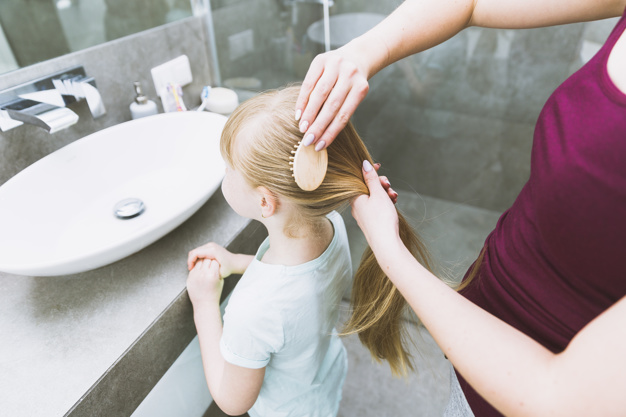
4. Routine will be your friend (eventually): After any period of disruption, humans are naturally inclined to want to get back to "routine." The familiar patterns and behaviours that give us a sense of security and connection. Routines are important and necessary, especially for younger members of the family who find their most essential security in what is familiar. That being stated, know that there will likely be a period of adjustment as we get back into the routine. It doesn't just happen naturally all of the time. This will be especially relevant when many of you change locations back to Shanghai and enter into the 14 day quarantine period where so much will be familiar but inaccessible, especially relationships outside of your immediate family. My advice, be gentle with yourself and your family, especially in the first few days after your arrival. You children may be excited and also frustrated that they can't leave. You may feel the same way. This is all normal. How we care for one another during challenging times can make families stronger and more resilient. And when we remember the idea of "Social Referencing" we can know that the ways in which we act, care for, take advantage of, this opportunity could positively impact your children for years to come and give them a sense of security and "grit" that will be a gift to them moving forward.
That all being stated, if you’ve been with your kids for FAR too long then making sure you get some uninterrupted “me” time will be essential so take turns as parents if you can…or put your kids in their rooms early and open a bottle of wine. You deserve to be happy as well!
Feel free to connect with me at [email protected] and we can chat about strategies, realities, joys or anxieties. I look forward to hearing from you.
Be well,
Mr Peter Rogers
Director, Community Wellbeing - Senior School

Taking a long, loving, look at the real…
Jesuit theologian Walter Burghardt once described contemplation as taking a “long, loving look at the real.” I’ve always been drawn to that definition but in this Covid-19 crisis, I find that it’s particularly relevant for me as a parent, partner, family member and colleague.
Here’s my take on this phrase in each of its three parts: long, loving, and look at the real.

Long. In a world filled with seemingly endless messages on Teams, Social Media, and the increasingly sped-up news cycle, to take a long gaze at anything requires sustained time and focused attention. More personally for me, it means putting away my phone and paying attention to my young son by being physically, intellectually, and emotionally available to him as we kick a ball back and forth, draw, read a new book, or look at the birds together in the morning right after he wakes up. Uninterrupted time is so vital in relationships and practising this habit will also improve your work. Research is clear that most professionals aren’t as productive as they would like to be because their workflow is being interrupted (on average) every 15 minutes, which leads to less quality attention being given to the important work in front of you. One solution: set aside sometime every day to focus on the people who are most important to us, even if it’s for 15 minutes to start. At work, see if you can set a schedule (e.g. Tuesday and Thursday mornings) where you will be uninterrupted before 12:00 noon. Allow yourself the pleasure, both at home and at work to breathe deeply, focus your attention, and move through the world at an unhurried pace. Trust me, it’s lovely. *Make sure you take breaks for yourself as well.

Loving. I find this part particularly challenging given that I tend to be more judgmental than loving when I’m looking at my own life and recognizing the many ways in which I fail to live up to the best version of myself. However, when I remove the glasses of judgement and gently look around and contemplate my world, this is what I discover:
- I look but do not judge. In our world today where social media has “amplified outrage” to create more content and clicks, I strive to be absorbed in what I’m doing…whether that’s playing with my son, listening without responding to family members, writing, or cooking. In other words, I’m trying to relax into an openness that doesn’t require striving or hard work, just focused attention.
- I also work at being “indifferent” to a particular outcome and desire to accept life as it happens without expectations. This is easier said than done! When I’ve been able to let go of expectations I’ve found that wonderful, creative energy can pour into the conversation, the problem, the long-term challenge, or short-term joy. When we’re free of expectations we’re free to focus our energy wherever it’s needed to be most impactful.
- The world is not perfect. I’m not perfect nor is anyone perfect. When I expect perfection usually non-helpful consequences take hold almost immediately. Today I might need to forgive a family member or colleague, tomorrow I may need to forgive myself and ask for forgiveness. Life is difficult and living as a family is not easy. Looking at others in a long and loving way opens the possibility for forgiveness. Forgiveness, in turn, helps us move forward through the difficulty so that we can further grow our ability to be authentically present to our loved ones and our work in the present moment.

Look at the real. This may be the toughest part of living contemplatively. If you’re anything like I am your very skilled and adept at fooling yourself and making the mistake of thinking that the way YOU see the world is the way that the world actually is. Nothing could be further from the truth. To have the courage to be open to what is “real” and allow ourselves to lower our defences so that we can experience life, even for a short time, as another person is experiencing it is hard. When my son gets frustrated because he can’t do something he gets fussy almost instantly and I’ve been quick to respond with positive assertions that I need to monitor. Namely, is my response to his frustration a loving response that allows for him to struggle a bit and be loved in the struggle or is my response simply a desire to not deal with an upset 19-month-old? I do better on some days than other days but I need to always gently be asking myself the question “is what I’m experiencing real or just my projection of what’s real? What is HE experiencing and how can I be a more loving and responsible parent knowing his experience more deeply?” When I do this, the following energies usually manifest:
- I’m able to recognize that my experience and perspective are part of a larger reality…not reality itself.
- I’m able to see more clearly where I’ve contributed and where I’ve failed to contribute, which allows me to feel deeper satisfaction and also resolution to improve.
- I’m able to see the reality more clearly (not perfectly), and that allows me to adapt and change more quickly, even when it’s difficult.

As we continue to move together through this challenging time, my invitation to you is to continue to take, or begin to take, “A long, loving, look at the real…” My suspicion is that eventually, you’ll begin to see flowers where you used to see dirt, you’ll seek forgiveness when there is a temptation to blame yourself or others, and you’ll see your family members more clearly, which will allow you to be with them more completely.
Thank you for all that you’re doing to support your daughters and sons and help then grow from this experience.
Have a comment, a thought, or want to talk through strategies for working with your daughter or son? Reach out to me at [email protected]
Be well,
Peter Rogers
Director, Community Wellbeing - Senior School

The Hero’s (Coronavirus) Journey
Reimagine, if you will, a different ending to the most successful book series in history, Harry Potter.

After 7 years of growth, maturation, and various trials Harry finally prepares himself to undertake the most important mission of his young life, confronting his nemesis, the Dark Lord, Voldemort face to face. Moreover, Harry realizes that in order to open the possibility that Voldemort will be destroyed he must sacrifice his own life at Voldemort’s hand. Breathlessly, we walk with our hero on his most important test until he and Voldemort stand face-to-face. The Dark Lord laughs, raises his magic wand, screws his evil face into a twisted smile as he looks down upon Harry, standing silently, expecting to die and complete his life's work. The Dark Lord bellows a curse, summons all of his hate and prepares for the kill only to suddenly lower his weapon and weakly crumple to the ground in tears. Harry, confused and wary, approaches his would-be murderer and silently reaches out his hand. The Dark Lord, through gulps of breath and tears of regret, gently hands his weapon to Harry who accepts it, gingerly, while gently pulling a weeping Voldemort to his feet.
They walk arm-in-arm out of the forest and into the waiting arms of security authorities who promptly arrest the Dark Lord while he confesses his past crimes and accepts all responsibly for his evil deeds. The Voldemort is willingly led away to a maximum security prison where he will never be heard from again. Harry is reunited with his friends, Hermione and Ron, who are looking at each other relieved but befuddled, each thinking the same thing. "What do we do now?"
Admittedly, if this was the actual plot arc of Harry Potter one could surmise that it may have been the biggest disappointment in the history of modern fiction. To spend years building narrative tension for a final test that doesn’t happen would leave the reader feeling deeply disappointed and, perhaps, cheated. What if J.K. Rowling had written this exchange between Hermione and Harry before he enters the forest: "Harry, Harry, there’s a change of plans! Harry, you’re no longer required to sacrifice yourself to Voldemort! He’s been sickened by Coronavirus and can’t meet you in the forest. Isn’t that great, Harry? There is a catch, though. Instead of fulfilling your destiny in the forest you’ll have to submit a portfolio on how you WOULD have fulfilled your destiny and how your death would have spelled the end for Voldemort. I’ll help you pull all your materials together, let’s get to the library!”
But this plot arc, as disappointing as it may have been, is the reality that is being lived by hundreds of thousands of senior students around the globe who have spent years preparing for final tests and trials that will never actualize in the way that was envisioned. Our heroes, who have embarked on this adventure, this mission, encountered tests and trials (and some enemies perhaps) while on a mission to slay the IB, or A Levels, or AP Classes.
While it's absolutely understandable that exams were cancelled this year it's also a reality that your daughters and sons will be completing their high school experience in ways very different than you may have imagined. There will be milestones, but they will look different than the milestones you prepared for. How can we make meaning of a story that was supposed to have an epic ending but instead limped to the finish? Here are four insights and strategies that I hope can help you as you and your children move through this challenging time.

Competition matters. Turn on the television and watch any sports talk-show and the same narrative is playing out. Major sports stars are in self-quarantine but desperate to compete again. There is something primal about testing your physical or intellectual abilities against others and the removal of this may be a significant and depressing reality for those who were itching to enter into the arena. Case in point, many Olympic athletes were devastated at the news that the Olympics were postponed until next summer.
Strategy: Remind your daughters and sons that being 1% better than they were yesterday is the competition they should focus on. Also remind them that, long-term, effort and commitment are more strongly correlated with success than good grades. So, while good exam marks are important, they’re not as important as working hard and learning from mistakes.

The Journey Matters. It's long been an axiom that life is a journey, not a destination. Peaks and valleys, straight roads and crooked paths are all a part of it. This year's graduating class will be historic and memorable and you may have greater emotional freedom around all of the unanticipated changes by thinking of your life as "narrative" as opposed to "event."
Strategy: What if you created a history of your relationship work in addition to your academic work? In other words, “How have the people in your lives impacted you and given you nourishment for the journey ahead?” Creating personal space for an activity like that could be well worth the time and effort.

Ritual matters. Throughout history, humans have marked the days, weeks and years with special dates that signify importance. Perhaps it's a birthday, a wedding anniversary, a religious holiday. Graduation from high school may be the most significant milestone that a young person can reach. Celebrating achievement and hard work is foundational to our social fabric so it's essential that these celebrations occur in creative ways through adaptation.
Strategy: Whatever shape or form that it takes, graduation ceremonies are necessary and WILL happen but our current reality also leaves almost endless potential for creating new ways of doing rituals that can include the very best of the past while adapting to current realities. Think about that as we move towards graduation and also contemplate what rituals are most important to you and your family and how you can be creative in making them as meaningful as possible.

Mentors Matter. No hero does their journey entirely alone. An essential piece of the hero myth is that the hero meets a mentor (often a mysterious person) who gives the hero physical skills (or a physical instrument) and also psychological commitment. Think of all the training montages in movies where the mentor is taking the student (hero) through their training. It's as old as time and the way that most of us learn best.
Strategy: Mentorship needs to continue even though many students have finished their essential course work in the upper years. Refocusing mentoring and teaching from “Excelling on these tests” to “Preparing for the next journey” will be critical given that many (not all) graduating students may feel adrift and alone. More specifically, what are their gifts and where have they demonstrated real competence? How can they translate these strengths into “force multipliers” that positively impact all aspects of their life? This is where creative mentoring could sow the seeds that will grow at some later time and (quite possibly) without your knowledge.

In the end, the class of 2020 will undertake other heroic journeys, overcome obstacles, develop competencies and slay (metaphorical) dragons along the way. Be mindful of these insights and strategies as you move through the next few weeks and months. Be gentle with yourself and know that your daughters and sons may potentially move through various stages of any or all of the following feelings: relief, frustration, sadness, anxiety, happiness, isolation, and anger. Honor their feelings in the moment with an eye towards inviting them to consider the many adventures and opportunities that await them in the future.
I’d love to hear from you. Please send comments, suggestions, thoughts or just a “Hello” to [email protected]
Be well,
Peter Rogers
Director, Community Wellbeing - Senior School











